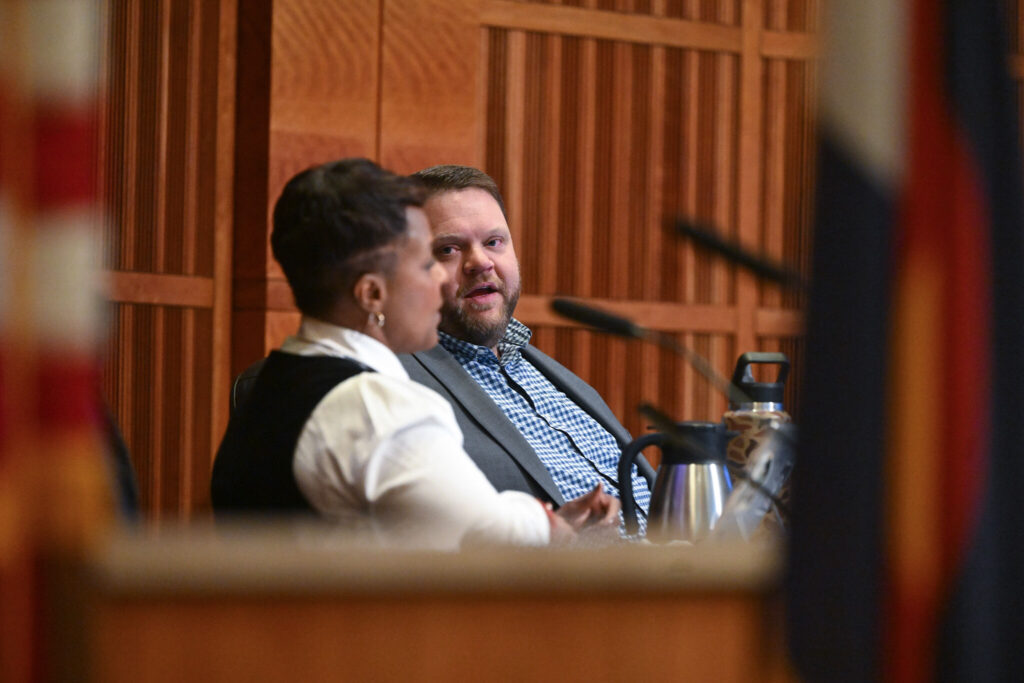Arapahoe County conditionally approves Lowry Ranch fracking application

Arapahoe County conditionally approved another oil pad in the Lowry Ranch fracking plan that will go on State Land Board property near the Blackstone neighborhood in Aurora.
The Secret Stash facility, from GMT Exploration Company LLC, was approved by the county’s Public Works and Development Department, the county announced in a news release Tuesday. It will be located about 1.3 miles east of the Blackstone neighborhood and there will be a total location disturbance of 18 acres, according to the release.
The news comes just a week after another well pad application, State Wetterhorn-Handies, was conditionally approved by commissioners.
Approval conditions for Secret Stash include the following and the full list of conditions is in a letter from the county.
- The operator will drill and complete the wells in phases, with the first including up to six wells and the remaining wells will be completed in later phases.
- A licensed biologist must complete a migratory bird nesting survey within a quarter mile of the pad at least seven days before grading starts. If nests are found, additional protective measures may be required.
- The operator must pay the county’s oil and gas transportation impact fee, which is $1,301 per pad plus $40,157 per well, totaling $242,243, in the first phase and $317,996 for the second phase.
Colorado’s regulatory Colorado Energy and Carbon Management Commission voted in August to green light the Lowry Ranch fracking plan, which includes 32,000 acres of proposed subsurface mineral development with eight locations and 166 new wells. The approval came after days of testimony and years of controversy.
Part of the plan includes drilling about 7,000 feet under the Aurora Reservoir and on land surrounding the reservoir, which drew opposition from the community and sparked the creation of Save the Aurora Reservoir (STAR) — a nonprofit formed to protect the reservoir from oil and gas operations.
STAR President Randy Willard submitted a letter to the county when the Secret Stash site was approved, calling the decision “cowardly,” and “a violation of the public trust.”
“Applications that vary from the letter of the regulations have been routinely approved administratively ‘with conditions’,” Willard wrote. “Conditions mean the application as submitted did not meet the requirements on its own.”
STAR was told grid electrification would be required to keep noise and fume levels from diesel generators down, the letter said. For Secret Stash, there is an exception to that rule.
The letter states a variety of other concerns opponents of the Lowry Ranch CAP have expressed from the beginning — those of poor air quality, health risks to nearby residents and insufficient preparedness for emergencies.
“To STAR and our community, it seems as though you couldn’t have done this any more poorly,” Willard said in the letter. “Could you have angered and misled the community any more deeply? You have destroyed whatever relationship and trust that you earned from the community in our early days of partnering on this very complex and dangerous issue.”
An email from The Denver Gazette to Arapahoe County officials for response to Willard’s accusations drew no response as of this story’s publication.
While the overall Civitas Lowry Ranch Comprehensive Area Plan was approved by the commission, operators still have to submit an oil and gas development plan (OGDP) application for each of its proposed well sites before moving forward.
Each application has to be approved by both the ECMC and Arapahoe County before drills hit the ground.
Several other well pads are in the process of being approved or have been, including the State Harvard-Yale pad, which is under review, the State La Plata South and State Sunlight-Long, which were both conditionally approved.
STAR and other members of the community have attempted to stop the overall plan from moving forward, and are now in the process of fighting each individual site application — citing concerns about health and safety, the project’s effect on the “climate crisis,” risks of water contamination and threats to local wildlife.
Civitas has countered that the project offers unequivocal benefits to the surrounding areas and to the county and it would would yield an estimated $235 million in tax revenue for Arapahoe County.
Company officials also promised to adopt a wide array of precautions, including building wells farther away from homes and adding air monitoring and sound barriers to protect residents and ensure the project does not negatively affect the area.
Civitas spent two years obtaining approval from the state for oil-and-gas drilling, finally getting it after a hearing that lasted three full days.
More information about the well pad applications and the project can be found on Arapahoe County’s oil and gas website and Citivas’ project page.



















